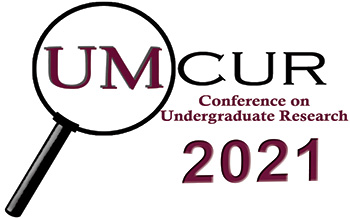Project Type
Presentation
Faculty Mentor’s Full Name
Laurie Minns
Faculty Mentor’s Department
Division of Biological Sciences
Abstract / Artist's Statement
Abstract:
Glioblastoma is described as one of the most pugnacious forms of brain cancer that is an uncurable diagnosis and entails a journey of adversity for the female caregivers. Female caregivers encounter high amounts of medical bills, job-loss for those diagnosed that leave families in a financial crisis with no safety net. 102 letters were written by female caregivers that express the challenges they experienced and were analyzed for data collection. These letter writers gave consent to viewing the information for data collection. Specific words and phrases were chosen throughout the letters that created a narrow focus of the study of financial concerns. For example, the words insurance, social workers, Medicare, Cobra, etc. were chosen to further the research of how an impact affects a caregiver’s quality of life. Using a subset of 67 letters, the focus on different outcomes and recommendations for financial burden can benefit female caregivers and those affected who may encounter this diagnosis in the future. This study was approved by the University of Montana institutional review board (IRB 224-19). The importance of this article is to tackle the challenge that female caregivers face with insurance companies and social workers. To create a higher quality of life for these caregivers, this information is necessary to promote knowledge and understanding to offer the patients with glioblastomas the best care. The recommendations that are provided throughout this article will bring a focus on ways to lessen the financial burden in the future.
Category
Social Sciences
Caregivers of GBM Patients Express High Financial Burden
Abstract:
Glioblastoma is described as one of the most pugnacious forms of brain cancer that is an uncurable diagnosis and entails a journey of adversity for the female caregivers. Female caregivers encounter high amounts of medical bills, job-loss for those diagnosed that leave families in a financial crisis with no safety net. 102 letters were written by female caregivers that express the challenges they experienced and were analyzed for data collection. These letter writers gave consent to viewing the information for data collection. Specific words and phrases were chosen throughout the letters that created a narrow focus of the study of financial concerns. For example, the words insurance, social workers, Medicare, Cobra, etc. were chosen to further the research of how an impact affects a caregiver’s quality of life. Using a subset of 67 letters, the focus on different outcomes and recommendations for financial burden can benefit female caregivers and those affected who may encounter this diagnosis in the future. This study was approved by the University of Montana institutional review board (IRB 224-19). The importance of this article is to tackle the challenge that female caregivers face with insurance companies and social workers. To create a higher quality of life for these caregivers, this information is necessary to promote knowledge and understanding to offer the patients with glioblastomas the best care. The recommendations that are provided throughout this article will bring a focus on ways to lessen the financial burden in the future.
